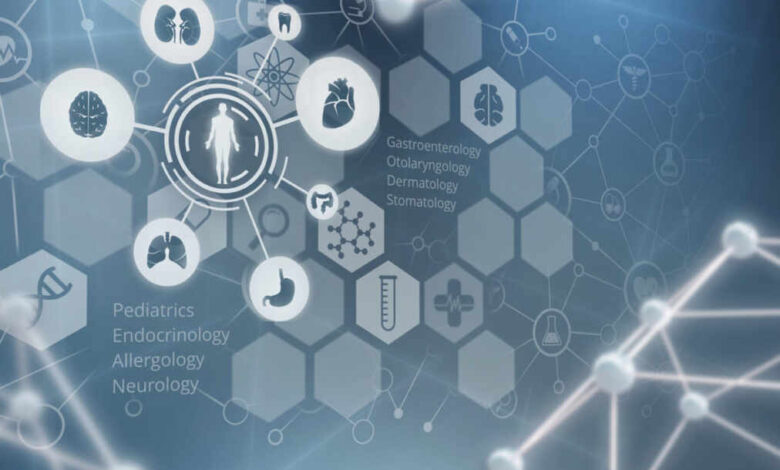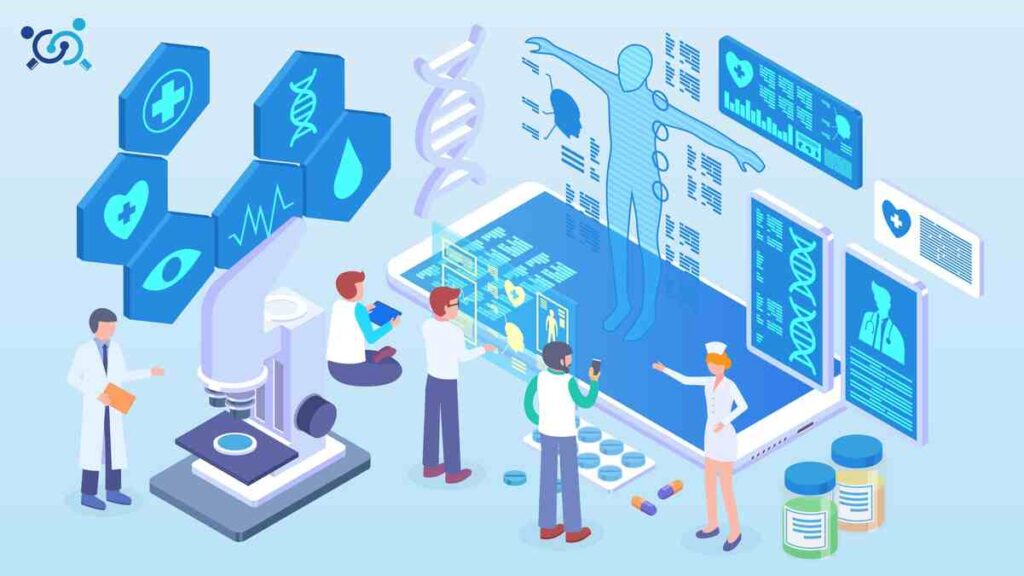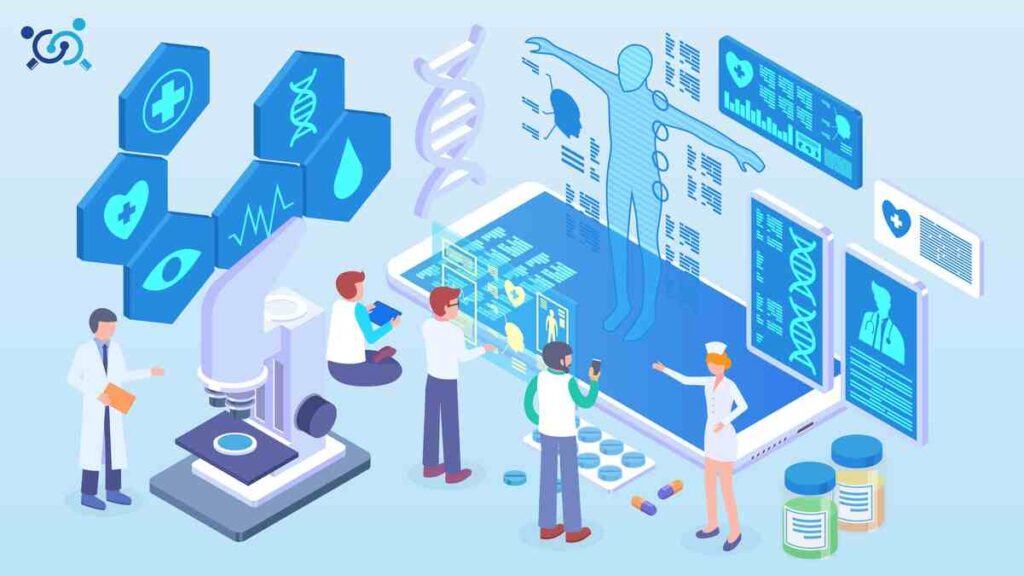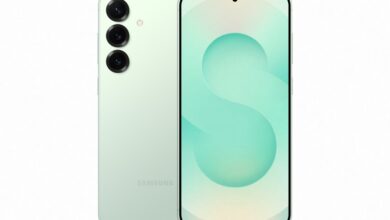Healthcare Technology Innovations: Revolutionizing Care

Healthcare Technology and innovations are the cornerstone of transformative change. reshaping patient care and propelling the industry into unprecedented advancements, from state-of-the-art medical devices to revolutionary software solutions. The infusion of technology into Healthcare enhances efficiency and redefines the essence of the patient-provider relationship.
Healthcare Technology: Bridging Gaps in Access
One of the most monumental shifts in recent years in Healthcare has been the proliferation of telehealth—a seismic transformation driven by the convergence of medical expertise and digital connectivity. Telehealth has emerged as the linchpin ensuring continuous access to healthcare services, especially in the face of global challenges that necessitate remote solutions. This innovative approach bridges geographical gaps and addresses the pressing need for accessible and timely medical consultations.
Enhancing Patient Experience Through Wearable Devices

In healthcare technology, wearable devices have become commonplace and integral to fostering proactive health management. These devices range from smartwatches to fitness trackers. Transcend mere gadgets, evolving into powerful tools that monitor vital signs, track physical activity, and provide real-time health insights. This paradigm shifts individuals to actively participate in their well-being while furnishing healthcare professionals with a treasure trove of data for more informed and personalized treatment plans.
Artificial Intelligence in Healthcare Technology: A Game-Changer
- Integrating Artificial Intelligence (AI) Into the healthcare sector represents a transformative leap. Heralding an era of unprecedented diagnostics, treatment planning, and overall patient care advancements.
- At its core, AI’s role in Healthcare is transformative, particularly in diagnostics. The ability of AI algorithms to analyze extensive datasets with speed and accuracy enables the early detection of diseases. Even in their nascent stages. This early detection is a game-changer, offering healthcare professionals a critical advantage in intervening at the earliest possible moment when interventions are often most effective.
- AI goes beyond mere diagnosis; it extends into predicting potential health risks. By meticulously analyzing myriad factors, including genetic predispositions, lifestyle choices, and environmental influences, AI can generate insights into an individual’s likelihood of developing specific health conditions. This predictive capacity empowers healthcare providers to adopt a proactive rather than reactive approach, implementing preventive measures tailored to an individual’s unique risk profile.
Precision Medicine: Tailoring Treatment for Individual Needs
Within healthcare technology, precision medicine emerges as a beacon of innovation, steering away from the one-size-fits-all approach. This groundbreaking model factors individual variability in genes, environment, and lifestyle, ensuring that medical treatments are meticulously tailored to each patient’s unique profile. Precision medicine maximizes therapeutic efficacy while minimizing the risk of adverse effects, ushering in a new era of personalized Healthcare.
Blockchain in Healthcare: Enhancing Transparency
- At its core, blockchain technology represents a paradigm shift in data security. The decentralized nature of a blockchain ensures that patient data is not stored in a central repository vulnerable to unauthorized access or malicious attacks. Instead, the information is distributed across a network of nodes. Creating a system where altering or compromising data becomes virtually impossible. This inherent security feature establishes Blockchain as a powerful deterrent against cyber threats and unauthorized breaches. Assuring patients and healthcare providers that sensitive information remains confidential and intact.
- The immutability of a blockchain ledger further fortifies patient data integrity. This prevents tampering or manipulating medical records and establishes a verifiable and transparent audit trail. Healthcare professionals can trust that the data they access is accurate and has not been altered. Instilling confidence in the reliability of patient information is crucial for informed decision-making.
- Blockchain’s role in facilitating interoperability among healthcare systems is another pivotal aspect of its impact. They are hindering seamless communication and collaboration among different entities within the healthcare ecosystem. Blockchain, however, acts as a unifying force by providing a standardized and secure framework for sharing medical records. This interoperability streamlines the exchange of information among authorized entities. Ensuring that relevant patient data is readily accessible when needed, contributing to more coordinated and efficient healthcare delivery.
Streamlining Healthcare Operations with Cloud Computing

Integrating cloud computing into healthcare operations marks a pivotal milestone in optimizing accessibility to critical information and fostering seamless collaboration among healthcare professionals. Cloud-based solutions transcend traditional boundaries, ensuring secure storage of patient data and its availability whenever and wherever needed. This scalability enhances operational efficiency and contributes to the overarching goal of delivering patient-centric and timely care.
The Internet of Things (IoT) in Healthcare: Connecting Devices for Seamless Integration
The Internet of Things (IoT) Has emerged as a game-changing force in Healthcare, creating an interconnected web of medical devices that communicate in real-time. This networked ecosystem facilitates continuous monitoring and seamless data exchange, enhancing diagnostic capabilities and promoting a more holistic approach to patient care. Through the interplay of interconnected devices, healthcare professionals gain deeper insights, allowing for more informed decision-making and proactive interventions.
The implications of IoT: In Healthcare, it is profound and transcends the traditional boundaries of medical practice. As Healthcare Technology professionals navigate this interconnected landscape, the interplay of devices enhances their decision-making and allows for more personalized and patient-centric interventions. The symbiotic relationship between Healthcare and IoT exemplifies a future where technology converges with compassionate care, forging a path toward more efficient, effective, and patient-focused healthcare delivery.
Conclusion: Embracing a Future of Technological Advancements in Healthcare Technology
In conclusion, the current healthcare landscape stands at the cusp of an exciting future shaped by technological innovations. Integrating telehealth, AI, precision medicine, Blockchain, cloud computing, and IoT collectively signifies a shift toward more accessible, personalized, and efficient patient care. As we navigate this transformative journey. The fusion of technology and Healthcare promises a future where the boundaries of what is possible continue to expand. Ushering in an era of unprecedented possibilities and improved healthcare outcomes.
Read for more: Digital Marketing Trends






